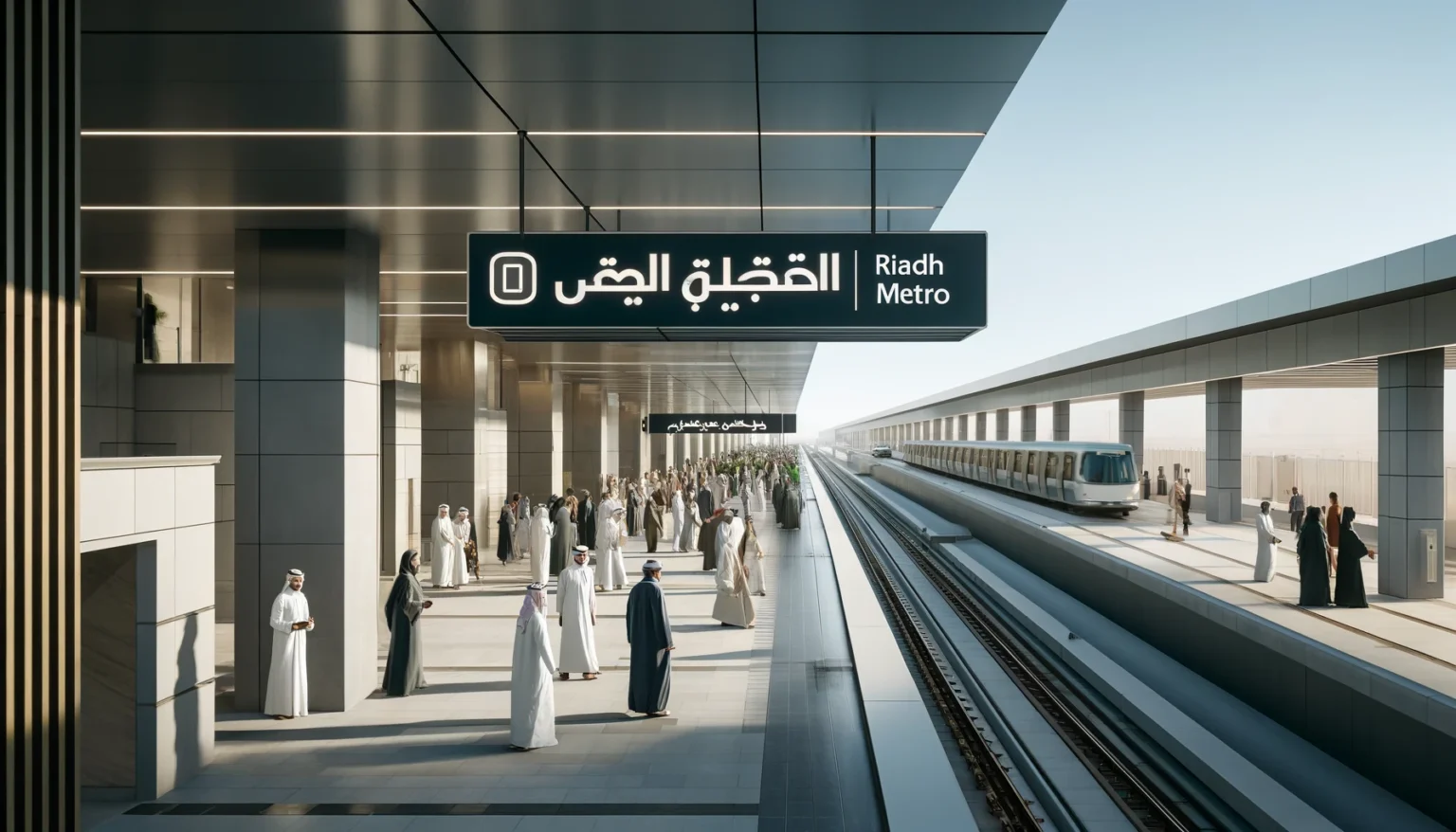Saudia Arabia- The Riyadh Metro project, a significant venture in Saudi Arabia’s capital, is nearing its launch, expected in December 2024. Managed by the Royal Commission for Riyadh City (RCRC), this $27 billion project is the largest transit investment in the Kingdom. It aims to transform urban transport and reduce the heavy traffic in Riyadh, where private vehicles dominate 90% of journeys.
Covering 176.5 kilometers with 84 stations and seven rail depots, the metro will be the backbone of Riyadh’s public transportation. Initially, it will handle 1.2 million passengers daily, expandable to 3.6 million. The network includes six lines that serve densely populated areas, public facilities, schools, and commercial centers. Key locations such as King Khalid International Airport and King Abdullah Financial District will be connected, enhancing urban mobility.
The six lines are:
Blue Line: 38 kilometers along Al-Olaya – Al-Batha – Al-Hayer roads.
Red Line: 25.3 kilometers along King Abdullah Road.
Orange Line: 40.7 kilometers along Al-Madinah Al-Munawarah Road – Prince Saad Bin Abdurrahman I Road.
Yellow Line: 29.6 kilometers along King Khalid International Airport Road.
Green Line: 12.9 kilometers along King Abdulaziz Road.
Violet Line: 30 kilometers along Abdurrahman Bin Awf Road – Sheikh Hassan Bin Hussain Bin Ali Road.
Four main stations – Qasr Al-Hukm District Station, King Abdullah Financial District (KAFD) Metro Station, Western Metro Station, and STC Station – are pivotal, providing services like parking, ticketing, and shops. All stations will feature air-conditioning, passenger information systems, and internet access.
Additionally, the Riyadh Bus Project integrates with the metro, featuring 80 routes and 2,860 stops, capable of transporting 500,000 passengers daily. The fleet includes 842 buses with amenities like Wi-Fi and smart ticketing.
The metro emphasizes sustainability, with stations designed to save energy and water and promote recycling. For example, photovoltaic panels at West Depot (Line 3) supply 33% of its energy. The KAFD Metro Station has achieved a 34% energy saving compared to ASHRAE 90.1 (2007) standards.
Safety is prioritized with advanced surveillance, firefighting equipment, and communication systems. There are also 21 park & ride locations accommodating 200-600 cars each.
As one of the world’s largest transport projects, the Riyadh Metro is set to enhance urban mobility, reduce traffic, and minimize environmental impact, playing a key role in Riyadh’s preparation for major events like the 2030 World Expo.
Source:



